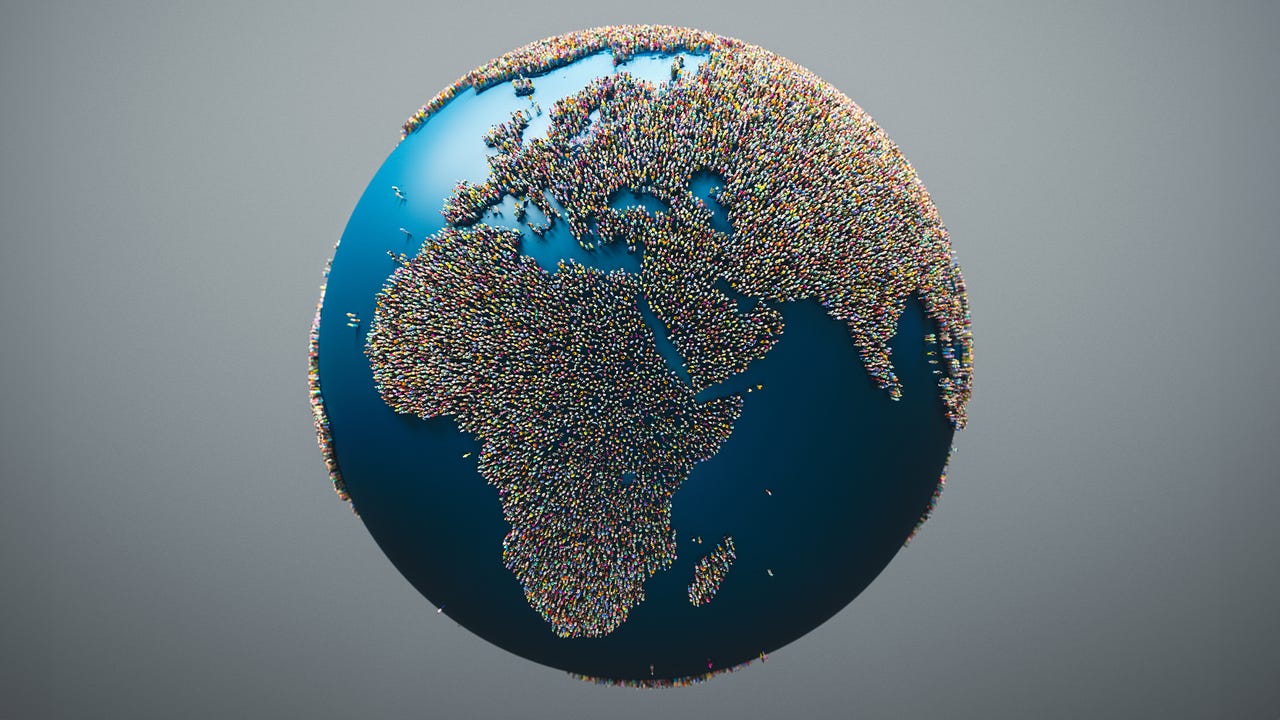
On the heels of ChatGPT’s first anniversary, a new study on the use of the top 50 artificial intelligence tools available crowned OpenAI’s chatbot as the most popular AI tool worldwide. ChatGPT accounted for 60% of traffic visits to the most popular tools between September 2022 and August 2023, an explosive time for the use of generative AI tools.
Also: Meta will enforce ban on AI-powered political ads in every nation, no exceptions
During this time, the United States was considered the leader in the use of AI tools. Writerbuddy, the company behind the study, scraped data from various directories that list AI tools and studied the use of over 3,000 AI tools. It then narrowed down the top 50 most used tools to investigate how people use AI.
What were the most popular AI tools?
It should come as no surprise that ChatGPT led with the most traffic visits, at 14.6 billion total visits since its launch in November 2022 through August 2023. The launch of ChatGPT triggered a generative AI boom that planted interest in other AI tools available.
- Top gainers in the AI industry
ChatGPT, Character AI, and Google Bard were the top gainers in traffic.
Also: Think you can spot a fake AI-generated news story? Take this quiz to find out
“After the initial boom, the hype kept on climbing all the way until May 2023 when monthly visits peaked at around 4.1 billion. That’s the first time we saw a pullback of 1.2 billion in the traffic of the industry,” according to Sujan Sarkar with WriterBuddy.
- Growth rate and monthly growth
The top 50 AI tools garnered over 24 billion visits combined and experienced a 10.7 times growth rate, with an average monthly growth of 236.3 million visits. Overall, the AI tools had an average of 2 billion visits monthly, with a surge to 3.3 billion in the last six months.
Also: 8 ways AI and 5G are pushing the boundaries of innovation together
Although Quillbot and Midjourney were in the top 5 most-visited AI tools, both experienced a drop in traffic in the past year. This is a sharp contrast with the explosive growth in traffic other AI tools experienced and could be attributed to the wider variety of tools created since the launch of ChatGPT. Midjourney lost 8.66 million visits in the past year, while Quillbot lost 5 million.
- The average duration of AI use
The average visit lasted 12 minutes and 34 seconds, enough to ask ChatGPT about black holes and then for a recipe for a fun cocktail or two. Interestingly, ChatGPT was among the tools that failed to maintain user interest for longer than an average of 10 minutes, while tools like Character AI, Dezgo, and Janitor AI averaged 25 minutes per session.
- Most popular AI categories
AI chatbots and AI writing were the most popular categories in AI tool use this past year, including ChatGPT, Character AI, and Google Bard in the top three. Image generators came in second to text generators, including Midjourney, DeepAI, and Craiyon.
Also: The best AI image generators of 2023: DALL-E 2 and alternatives
Less popular categories include design, video generators, voice and music generators, and others. Hugging Face, Taskade, and Cutout are among the “others” category stand outs.
What countries are using AI?
Countries like the United States and India and regions like Europe that have strong tech markets were found to lead AI use. The US led with 5.5 billion total users spread across different tools, which is about 22.6% of worldwide traffic to the AI industry. European countries comes in second with 3.9 billion users.
Also: How Google and OpenAI prompted GPT-4 to deliver more timely answers
Notably, India holds the second spot for most AI tool visits, with 2.1 billion visits, accounting for about 8.5% of the worldwide AI use in the past year.
Men appear to be more inclined to use AI tools, as 69.5% of users were found to be male, while only 30.5% were female. The study didn’t delve deep into the reasoning behind this gender gap, but it’s worth noting that different gender roles in varied societies worldwide could influence this result.
Also: Generative AI can easily be made malicious despite guardrails, say scholars
Of all the top 50 AI tools, 80.5% were reached by direct access, which points “to a well-established user base or frequent repeat visitors,” according to Sarkar. Organic search accounted for 11.4% of traffic sources, referrals took 6.7% of traffic, and organic social and others accounted for the rest. Only 0.12% of users reached the AI tools via a paid search.







